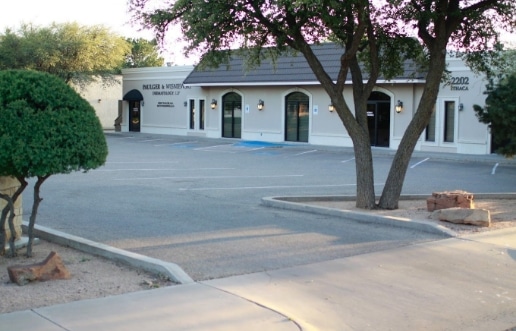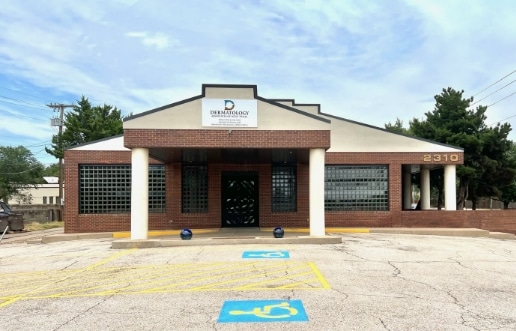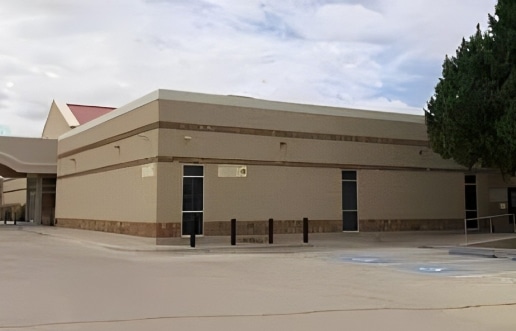At Dermatology Associates of West Texas, we offer advanced surgery services to treat skin cancer, benign growths, cysts, and other dermatologic conditions. With two offices in Lubbock and another office in Denver City, TX, we serve patients across West Texas with personalized, expert care you can trust.
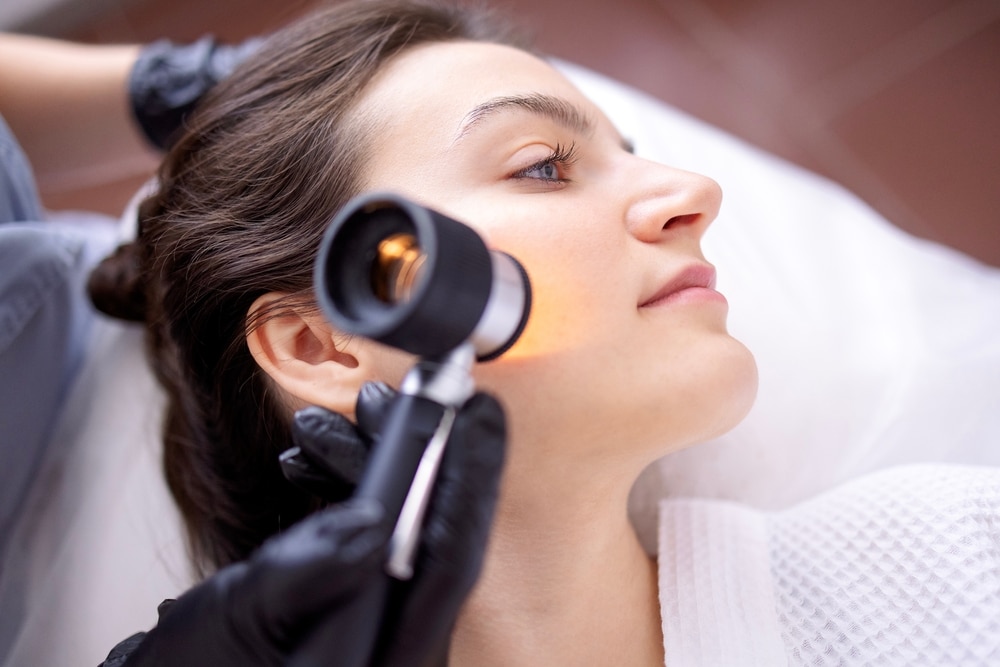
Excision of Skin Lesions
Our experienced doctors may recommend excisional surgery when a skin lesion, whether benign or cancerous, needs to be removed. The procedure involves removing the growth, along with a small amount of surrounding healthy tissue, to ensure complete clearance. Local anesthesia keeps you comfortable, and your doctor places small, precise stitches to close the site.
There are many types of skin lesions, including:
- Moles (nevi): Small pigmented spots, usually harmless, though some can change in appearance over time.
- Cysts: Closed sacs under the skin filled with fluid or semi-solid material.
- Lipomas: Soft, fatty tumors that sit under the skin and are almost always benign.
- Warts: Small, rough bumps caused by certain strains of the human papillomavirus (HPV).
- Actinic keratoses: Dry, scaly patches from long-term sun exposure that carry a risk of turning into skin cancer.
- Seborrheic keratoses: Non-cancerous, often raised growths with a waxy or stuck-on look.
- Skin tags: Soft, skin-colored flaps that typically appear in areas where skin rubs together.
- Basal cell carcinoma (BCC): The most frequent type of skin cancer, often appearing as a shiny bump or sore that doesn't heal.
- Squamous cell carcinoma (SCC): A form of skin cancer that may grow deeper and spread if not treated.
- Melanoma: A potentially life-threatening skin cancer that can spread quickly if not caught early.
- Lentigines (age spots): Flat, brown areas that develop from sun exposure, especially in older adults.
- Hemangiomas: Clusters of small blood vessels that form red or purple growths, typically benign.
- Dermatofibromas: Firm bumps that can appear after minor skin injuries and are generally harmless.
Any lesion that changes in color, size, texture, or sensation requires a prompt check-up with an expert dermatologist.
Mohs Micrographic Surgery
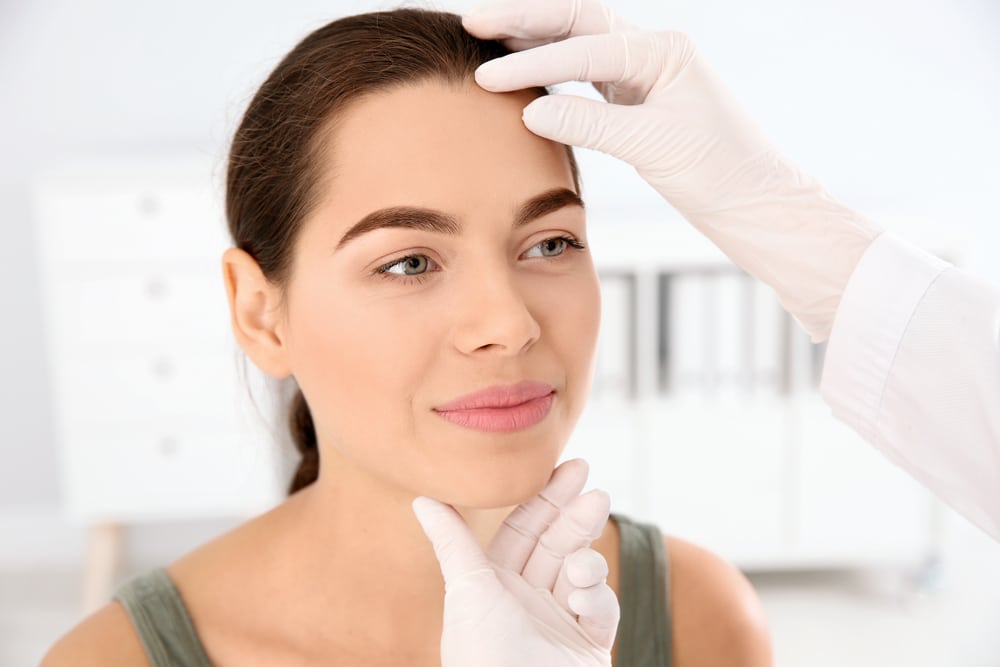
Mohs micrographic surgery is a specialized method for treating skin cancer, where tissue is carefully excised one layer at a time and examined for cancer cells. It's ideal for preserving healthy skin while treating basal cell (BCC) and squamous cell carcinoma (SCC,) and for certain melanomas on areas where precision matters most, like the nose, lips, or eyelids.
Only dermatologists with specialized training, like our fellowship-trained experts at Dermatology Associates of West Texas, are qualified to perform Mohs surgery. This method offers high cure rates (up to 99%) and excellent cosmetic outcomes.
Dermatologic Surgery Consultation and Evaluation
Your first step is a thorough consultation with one of our experienced dermatologists. We'll review your medical history, examine the area of concern, perform tests as needed, and recommend a treatment approach tailored to your condition and goals. If surgery is needed, we understand the prospect can seem intimidating. Our empathetic doctors take the time to explain your options in detail and answer all your questions before moving ahead.
Preparation Guidelines
Before your surgery, we may advise you to stop certain medications, such as blood thinners. You should plan to have someone drive you home and avoid strenuous activities for a few days afterward. We'll provide you with clear instructions tailored to your procedure.
Post-Operative Care
Caring for your surgical site properly helps ensure the best outcome. We'll provide detailed aftercare instructions. This includes details on caring for your incision, the warning signs of complications, and scar care.
Follow-up appointments enable us to monitor your healing and remove sutures as needed.
Healing Timeline
Most patients experience mild swelling or tenderness for a few days after surgery. Our dermatologic surgeons typically remove stitches within one to two weeks. Healing times vary based on the type of surgery, size of the lesion, and other individual factors. Most people return to normal activities within a week or less.
Scar Management
We take care to minimize scarring as much as possible. For many patients, scars fade significantly over time. We recommend scar-reducing treatments such as silicone gels or laser therapy to improve the appearance of the surgical site.
Why Choose Us for Dermatologic Surgery?
Dermatology Associates of West Texas is proud to be led by Dr. Brent Paulger, a board-certified and fellowship-trained dermatologic surgeon. With more than two decades serving West Texas, our team brings unmatched expertise and empathy to every patient we serve.
We believe our patients deserve dignity, respect, and the highest level of care. Our state-of-the-art practice is equipped to handle procedures ranging from simple excisions to advanced cancer removal.
Dermatologic Surgery Close to Home in Lubbock and Denver City
To schedule your dermatologic surgery consultation in Lubbock or Denver City, call us at 806-797-1202. We're here to protect your skin and your health.

